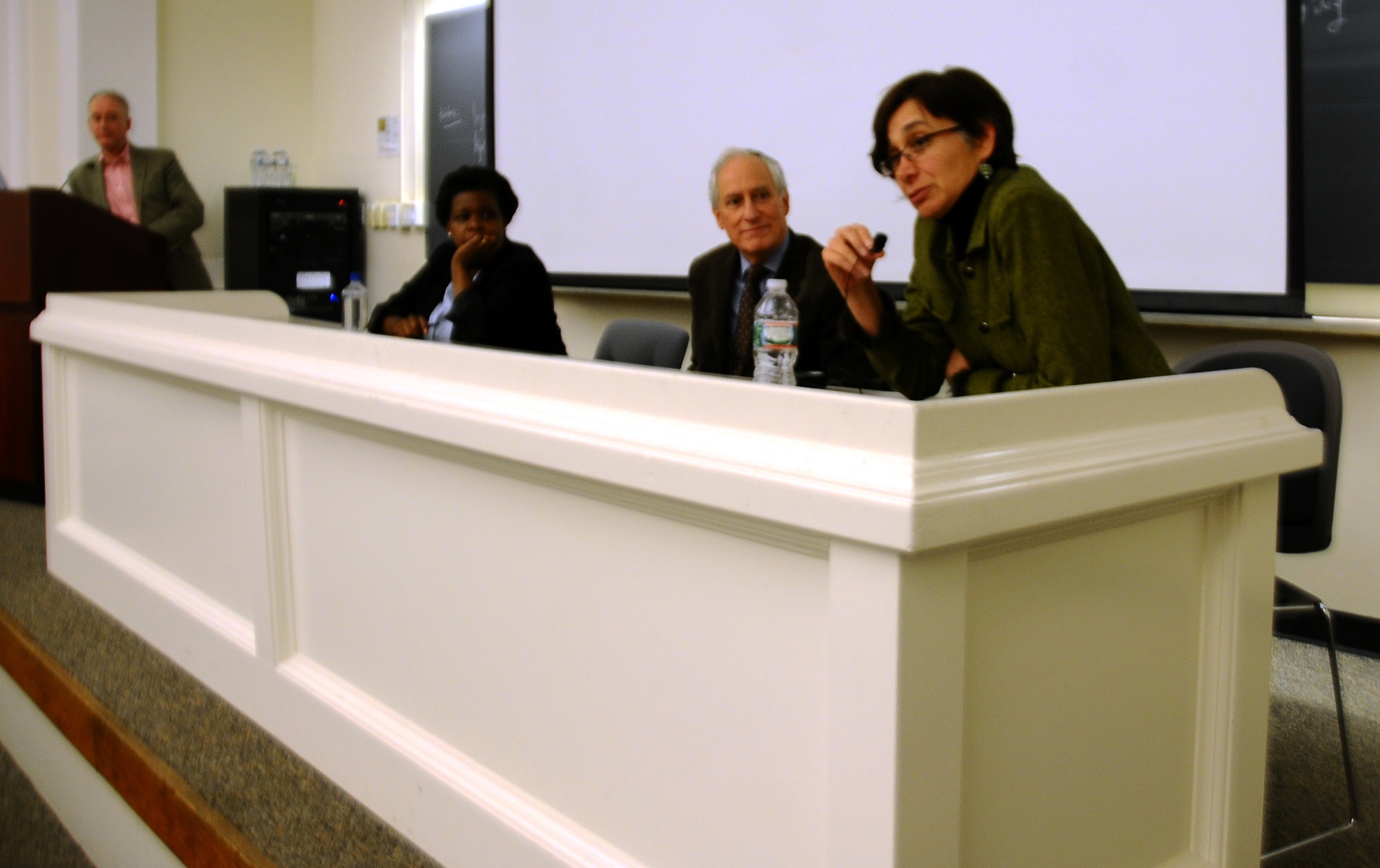
News
Cambridge Residents Slam Council Proposal to Delay Bike Lane Construction

News
‘Gender-Affirming Slay Fest’: Harvard College QSA Hosts Annual Queer Prom

News
‘Not Being Nerds’: Harvard Students Dance to Tinashe at Yardfest

News
Wrongful Death Trial Against CAMHS Employee Over 2015 Student Suicide To Begin Tuesday

News
Cornel West, Harvard Affiliates Call for University to Divest from ‘Israeli Apartheid’ at Rally
History Panel Seeks To Promote Discipline, Entice Concentrators

In describing her discipline, history professor Tamar Herzog related the study of the past to a vast forest crossed by many trails. She said those who study history must constantly choose which trails to take, or forge their own paths.
Herzog introduced this image to the audience of Wednesday’s “History is Everything/Everything is History” panel, an event designed to promote the discipline and entice potential concentrators. Besides Herzog, panelists included history professors Robert C. Darnton ‘60, Andrew D. Gordon, and Annette Gordon-Reed.
Throughout the evening, speakers sought to emphasize the complex, multifaceted, and ever-present nature of history.
“The DNA in your body, the way you dress, the kind of family you grew up in—all of these things carry traces of the past,” said department chair David R. Armitage, who introduced the panelists. “The past is very much alive.”
Professors spoke both about their recent projects and what the discipline of history means to them. Darnton, who recently wrote a book about censorship in Bourbon France, British India, and Communist East Germany, described some of his more exciting moments as a historian.
He recalled his experience studying at The Institute for Advanced Study in Berlin, immediately after the fall of the Berlin Wall. There, he met with two official censors for the East German Soviet government, who showed him the document in which they catalogued each piece of literature to be published in that year.
“When you tell people you’re in history they give you this pained expression because that was the course they hated in high school,” said Darnton in an interview with The Crimson before the event. “But history can be exciting, intellectually rigorous, and fun.”
Gordon, whose recent publications include “Fabricating Consumers: The Sewing Machine in Modern Japan,” also emphasized that investigating the history of even the most seemingly mundane objects or events can reveal amazing insights.
“If you had asked a hundred, maybe even a thousand historians of Japan what book ought to be written, I don’t think one of them would’ve said, ‘Oh, we need a book on the sewing machine,’” joked Gordon. “But the sewing machine tells us all about the constitution of the family and gender roles.”
For Gordon-Reed, who specializes in the study of American slavery and has published works on Jefferson and the Monticello plantation, the most important aspect of history is our constantly evolving understanding of it.
The event was one of several that the department plans to host in October and November, leading up to the deadline for sophomores to choose their concentrations.
“I declare this panel historic, and I declare this panel history,” Armitage said to wrap up the evening.
Want to keep up with breaking news? Subscribe to our email newsletter.
